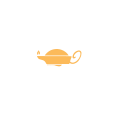Job role versus scope confusion
The College gets frequent calls from nurses asking “Am I allowed to undertake this task…?” or “Is what they are asking me to do within my scope?”
It is important to be clear about the differences in your responsibilities under your nursing scope and your job:
- Scope does not equate to task. The scope of registered nurses in NZ is broad and enabling. To undertake a ‘task’ you should be appropriately educated, assessed and meet legislative requirements.
- Let’s use some examples;
- Your job description suggests cannulation or punch biopsies or suturing are useful skills to have; they are tasks to be learned, assessed and continually updated. If you are appropriately trained then you can undertake them. Specific tasks do not get a mention in the scope. As an RN your scope says: “Registered nurses are accountable for ensuring all health services they provide are consistent with their education and assessed competence, meet legislative requirements and are supported by appropriate standards”
https://www.nursingcouncil.org.nz/Public/Nursing/Scopes_of_practice/Registered_Nurse/NCNZ/nursing-section/Registered_nurse.aspx
- You should refer to your scope, be familiar with it and ensure you understand its limits and opportunities. Many employers provide training for clinical skills and tasks. If in doubt then check with the nursingcouncil.org.nz
The Nursing Council of New Zealand audits 5% of the nursing workforce each year to ascertain if they meet the competencies. This can be stressful for many, but in reality, the process is straight forward. It’s about providing evidence that you can meet all of the competencies all of the time... and to provide evidence for the annual declaration you meet each year.
All practising nurses require an APC and must sign an annual declaration
- Practice Hours: 60 days (450 hrs) in past 3 years
- Professional Development hours: 60 hours in 3 years
- Competence Assessments x2 (See the PDF in the resources on how to approach the competencies)
But I am in a non-clinical role...
Nurses who move into non-clinical roles will often ask if they need to maintain an Annual Practicing Certificate (APC) from the Nursing Council of New Zealand.
The key is to work out if you are still influencing or affecting the nursing workforce, nursing care and/ or patients’ outcomes. If the answer is yes to any of those then yes, you should maintain an APC, but possibly not one for RNs in clinical practice, and yes there are other options for RN…read on.
Important note:
- Nurses undertaking any clinical practice, delivering clinical care must complete the clinical competencies.
- If you are non-clinical check that you are using the right competencies (see below).
Registered nurses (RN) in:
- management,
- education,
- policy
- research
RNs who are not practising in direct client care are exempt from the competencies that apply to clinical practice in Domain 2 (management of nursing care) and Domain 3 (interpersonal relationships).
RN nurses who practise in direct client care as well as management, education, policy and/or research must meet both sets of competencies.
If you are an RN involved in management, education, policy or research, please see the appropriate assessment form for your scope of practice in the downloads on the nursing Council website.
 Menu
Menu